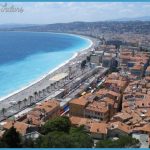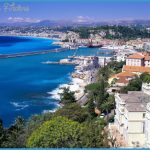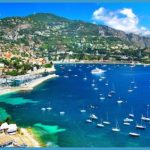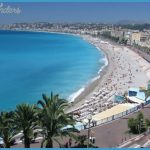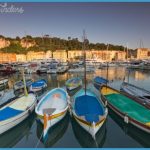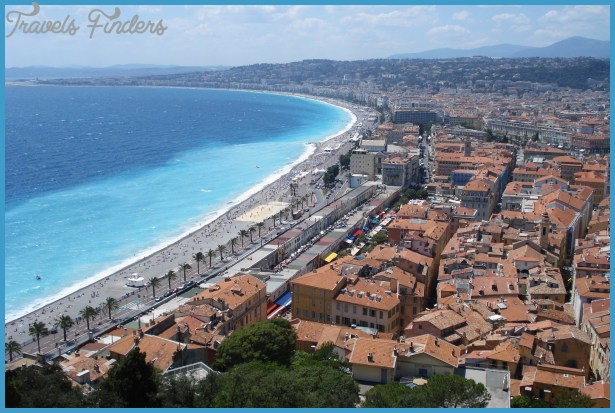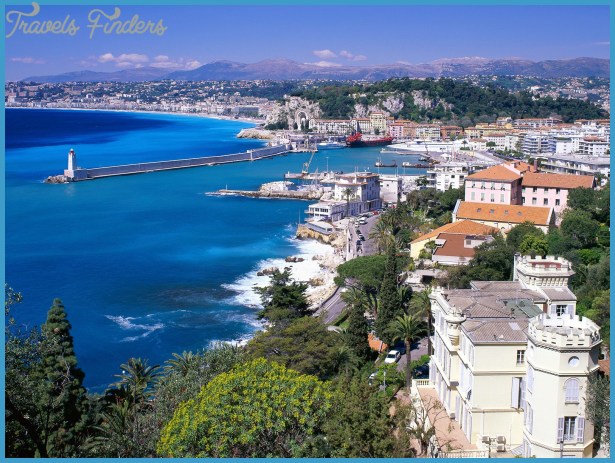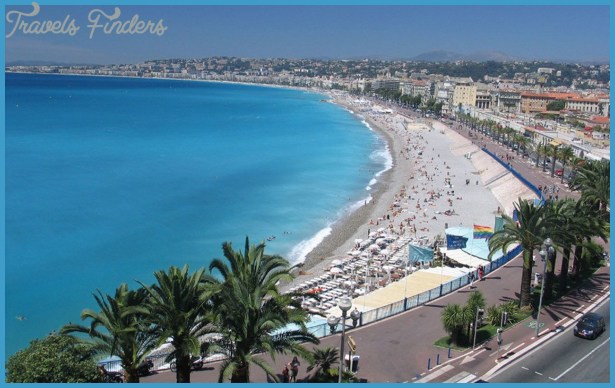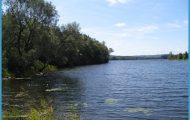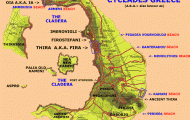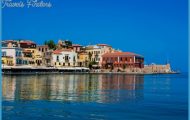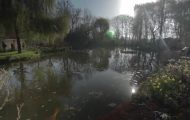Nice France Travel Destinations
CATHEDRALE ORTHODOXE RUSSE ST-NICOLAS. Also known as the Eglise Russe, this cathedral was commissioned by Empress Marie Feodorovna, widow of Tsar Nicholas I. Modeled after St-Basil’s in Moscow, the onion-domed structure quickly became a spiritual home for exiled Russian nobles. The gilded screen concealing the altar also sets it apart from French cathedrals. There’s one hint, however, that the cathedral is influenced by the Riviera: Its dominant colors are Mediterranean light blue and yellow rather than dark and somber blues and grays. (17 bd. du Tsarevitch, off bd. Gambetta. 04 93 96 88 02. Open daily June-Aug. 9am-noon and 2:30-6pm; Sept.-May 9:30am-noon and 2:30-5pm. ‚1.80.)
LE CHATEAU. At the eastern end of the promenade, Le Chateau the formal name for the remains of an 11th-century cathedral sits in a pleasant green hillside park ornamented by an artificial waterfall. Don’t be fooled: There hasn’t been a chateau here since an 8th-century battle. The top does, however, provide a spectacular view of the rooftops of Nice and the sparkling Baie des Anges. The vista can be reached by climbing 400 steps or catching the elevator at the Tour Bellanda. (Park open daily 7am-8pm. Elevator runs 9am-7:30pm. ‚1.)
MUSEE DES BEAUX-ARTS. The former villa of Ukraine’s Princess Kotschoubey has been converted into a celebration of French academic painting, including Van Dongen and Raoul Dufy. Dufy, Nice’s second greatest painter, celebrated the spontaneity of his city with sensational pictures of the town at rest and play. (33 av. Baumettes. Take bus #38 to Cheret or #12 to Grosso, s04 92 15 28 28. Open Su and Tu-Sa lOam-noon and 2-6pm. ‚3.80, students ‚2.30.)
MONASTERE DE CIMIEZ. This monastery has housed Nice’s Franciscans since the 13th century, and a few still call it home. The ancient monastery’s former living quarters have been converted to the Musee Franciscain, which exhibits illuminated manuscripts, medieval crosses, and a Giotto painting of St. Francis. The complex also includes a church, lovely surrounding gardens, and a large cemetery where Matisse and Dufy are buried. (PI. du Monastere. Take bus #15 (dir.: Rimiez) or #17 (dir.: Cimiez) to Monastere, or follow the signs and walk from the Musee Matisse. s04 93 81 55 41. Museum open M-Sa lOam-noon and 3-6pm. Church open daily 9am-6pm. Gardens open daily in summer 8am-7pm; off-season 8am-6pm. Cemetery open daily 8am-6pm. Free.)
MUSEE ARCHEOLOGIQUE ET SITE GALLO-ROMAIN. Adjacent to the site of ancient Gallo-Roman baths, this museum displays artifacts discovered on the Cote from the Bronze through the Middle Ages, including excavated coins, jewelry, and sarcophagi. (160 av. des Arenes de Cimiez. 04 93 81 59 57. Take bus #15, 17, 20, 22, or 25 to Arenes. Next to Musee Matisse. Open Apr.-Sept. Su and Tu-Sa lOam-noon and 2-6pm; OcL-Mar. lOam-lpm and 2-5pm. ‚3.80, students ‚2.30.)
JARDIN ALBERT lER. The central city park, Jardin Albert ler has the usual repertoire of benches and fountains. In addition, its outdoor Theatre de Verdun presents jazz and plays in summer. Contact the tourist office for a schedule. (Between av. Verdun and bd. Jaur&s, off promenade des Anglais and quai des Etats-ilnis. Box office open daily 10:30am-noon and 3:30-6:30pm.)
OTHER SIGHTS. Named by the rich English community that commissioned it, the promenade des Anglais, a posh, palm-lined seaside boulevard, is Nice’s answer to the great pedestrian thoroughfares of Paris, London, and New York. Today the promenade is lined by luxury hotels like the stately Negresco (toward the west end), where the staff still don top hats and 19th-century uniforms. Just east of the Negresco, the Espace Massena gives romantic picnickers a lovely shady area in which to woo each other beside lavish fountains. Private beaches crowd the seashore between bd. Gambetta and the Opera, but public strands west of bd. Gambetta compensate for the exclusivity.

